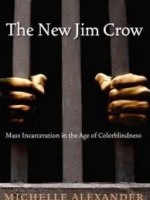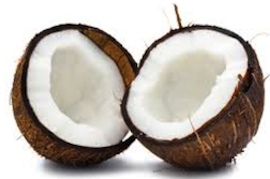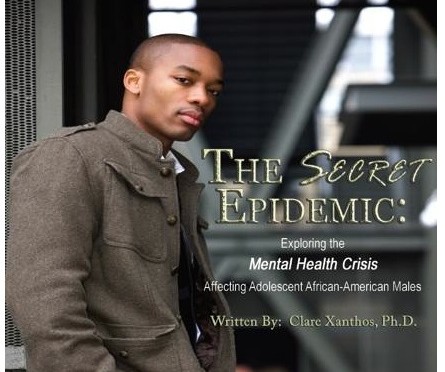The 2014 World Cancer Report from the World Health Organization’s International Agency for Research on Cancer (IARC) concludes that no amount of alcohol is safe. This, despite the fact that consumers have come to believe in the concept of “Responsible drinking”.
Even Light Drinking Puts You at Risk
Most people think that a couple of drinks nightly are good for heart health and overall well being but that appears to be a misconception. While research shows that the more alcohol a person drinks, the higher the risks of cancer, even one glass a night, especially when combined with smoking, is associated with breast cancer, for example.
In a meta-analysis of 222 studies comprising 92,000 light drinkers and 60,000 nondrinkers with cancer, it was estimated that in 2004 worldwide, 5000 deaths from oropharyngeal cancer, 24,000 from esophageal squamous cell carcinoma and 5000 from breast cancer were attributable to light drinking. Light drinking was not associated with cancer of the colon-rectum, liver or larynx.
Trace the trail
Actually, due to the carcinogens in alcohol – some which are formed naturally in the process of creating alcohol – sites in the body which are more likely to develop cancer are exactly the sites that alcohol reaches first as it travels through the body. While hard liquor was most damaging to the esophagus where fine cilia are most sensitive to ethanol found in hard liquor, the further alcohol travels through the body, the less the effects.
Other cancers that were found to be directly caused by wine, beer and spirits, along with hard liquor are cancers of the: mouth, pharynx, larynx, esophagus, colon-rectum, liver and female breast. A significant connection was found between alcohol consumption and pancreatic cancer.
Strong links have also been made between drinking and leukemia, multiple myeloma, and cancers of the cervix, vulva, vagina and skin. Researchers note that fewer studies have looked at those connections. Dr. J. Rehm, the lead on the IACR study says, “For the cancers that have been identified as being causally (not casually) linked with alcohol, we are absolutely certain that alcohol causes these cancers.
Alcohol contains lots of carcinogens
Alcoholic beverages can contain at least 15 carcinogenic compounds, including acetaldehyde, acrylamide, aflatoxins, arsenic, benzene, cadmium, ethanol, ethyl carbamate, formaldehyde, and lead. Ethanol is the most important carcinogen in alcoholic beverages. How the body breaks down ethanol is determined by your genetic profile.
There are many other factors that determine how and whether alcohol leads to cancer in individuals. For example, in some people due to their genetic profile, the ethanol in alcohol interferes with their ability to obtain folate from their diet. In breast cancer, alcohol increases estrogen levels and overstimulates breast cells. It is also thought that alcohol may increase the absorption of carcinogens in cigarettes. Because of this smoking and drinking is considered “a particularly dangerous mix”.
Avoidance of cigarettes and alcohol could prevent up to 80% of oral cancer cases and 90% of laryngeal cancer cases.
The amount counts
When it comes to the notion of one glass with dinner being helpful to heart health, more is not better; in fact, more is dramatically worse. Heavy alcohol use causes hypertension, atrial fibrillation, ischemic and hemorrhagic stroke, and nonischemic dilated cardiomyopathy.
This is a special concern for young drinkers where “binge-drinking” is popularized. The young more frequently suffer the adverse consequences of acute intoxication (accidents, violence, and social problems). In fact, among males aged 15-59 years, alcohol abuse is the leading risk factor for premature death.
With what is known now about alcohol causing so many cancers, the question should be similar to that for lung cancer. When we hear of someone dying of lung cancer we almost automatically ask, “Did they smoke?” When we hear of someone getting breast cancer now, perhaps we should also ask, “Do they, or did they, drink?”
While this may be disheartening news for those of you who feel the work week was created so that you can hit the bars on the weekend, there are other options. Researchers have found that people respond well to knowledge about their risks and begin changing habits. One of the best options can be found in the other activity that many clubs provide: dancing. Great for the heart and great for the spirit. No alcohol required! Music alone is known to effect the brain and start the endorphins flowing (free, too!). Many alcohol screening tools are available. Behavior change and positive effects have been observed in adolescents, adults, older adults, and pregnant women following alcohol screening and brief interventions aimed at reducing alcohol intake.
While physicians were recommended to “Investigate new drugs that mimic the milder effects of alcohol”, we’ve heard of some things even closer and more natural to Mother Earth. No, not marijuana, but natural, non-addictive herbs that are not known to damage brain cells – herbs like lemon balm, chamomile, mint, etc. or herbal preparations like Perfect Calm or St. John’s Wort (Read up on combinations to avoid and don’t use if you are taking antidepressants, psychotropic medications, etc. Be aware that in the same way that alcohol affects each person differently, so do herbs.) Check our posts for more articles on natural relaxants – coming up.
References
Rehm J, Shield K. Alcohol consumption. In: Stewart BW, Wild CB, eds. World Cancer Report 2014. Lyon, France: International Agency for Research on Cancer; 2014.
Lachenmeier DW, Przbylski MC, Rehm J. Comparative risk assessment of carcinogens in alcoholic beverages using the margin of exposure approach. Int J Cancer. 2012;131:E995-E1003. Abstract
Seitz HK, Becker P. Alcohol metabolism and cancer risk. Alcohol Res Health. 2007;30:38-41, 44-47.
Hamid A, Wani NA, Kaur J. New perspectives on folate transport in relation to alcoholism-induced folate malabsorption-association with epigenome stability and cancer development. FEBS J. 2009;276:2175-2191. Abstract
Al-Sader H, Abdul-Jabar H, Allawi Z, Haba Y. Alcohol and breast cancer: the mechanisms explained. J Clin Med Res. 2009;1:125-131.
O’Keefe JH, Bhatti SK, Bajwa A, DiNicolantonio JJ, Lavie CJ. Alcohol and cardiovascular health: the dose makes the poison…or the remedy. Mayo Clin Proc. 2014;89:382-393.




